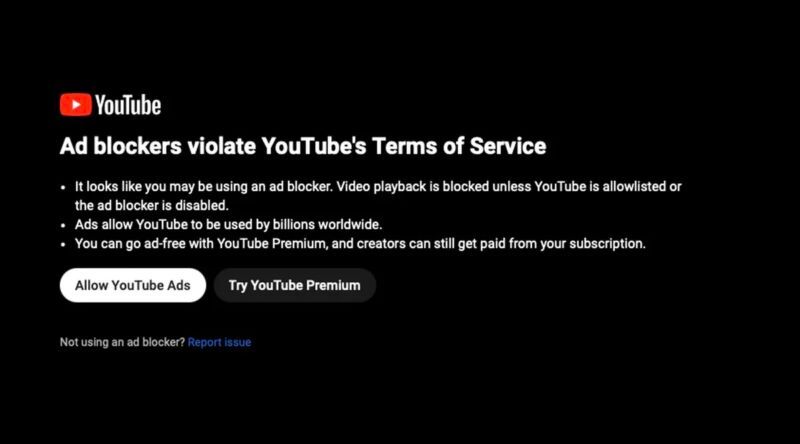Adblock is Accessibility

This is a slight departure from the usual articles about RPGs and autism, but as there is a lot of RPG content online, and internet accessibility is needed to make it a space for neurodivergent individuals to exist, this is an important issue that needs to be addressed publicly.
I was watching an autistic girl and her caregiver recently, going about their day. This autistic girl is non speaking, and uses a PECs program on her ipad to communicate. She was visibly becoming dysregulated, and asked for a certain song on her tablet, knowing it would help center her. As her caregiver attempted to pull it up on her laptop, Youtube began serving ad after ad, unskippable, loud, and intrusive, and I watched as this girl began to melt down.
A huge number of autistic people struggle with sensory challenges, and being able to control our sensory environments is a huge accessibility need. Things like headphones, music, stim toys, and specific types of clothing or blankets are godsends when we're becoming dysregulated. Being able to anticipate the sensation helps us use these tools to calm ourselves down and regenerate when the noise and chaos of the world is becoming too much. And for many of us, YouTube is a place where we can access a lot of the sensory experiences that help us stay regulated.
And until recently, AdBlock worked on YouTube. This meant that when I was starting to struggle, I could pull up YouTube, find an ambient mix, and center myself. Now, without that, whenever I try to pull up a calming music mix, or a specific clip of a show that helps center me, I'm treated to a loud, intrusive, unexpected, gaudy advertisement. It is often very loud, jarring, full of overstimulating noise, and literally painful. And any calm I had is gone. Sometimes, when I am seeking something to calm me down, and an ad happens unexpectedly, I react violently- throwing cans at my monitor, or thrashing so hard I almost fall out of my chair or throw my laptop.
Advertisements, as they exist on youtube, are not compatible with my disability.
I'm autistic, which means I have an invisible disability. I'm pretty good at masking, so it's even more invisible, but that means I have to spend a lot more time regenerating when I'm alone, trying to regain all the energy I spend masking in public. And this is a common experience with people with more invisible disabilities, they have to put in a ton of invisible labor just to exist in a world that is continually oppressive and exhausting. Very often we pay 'disability tax' which means we have to spend more for things than non disabled people- whether that be specific types of clothes, certain dietary items, medical treatments, or certain services. And after a while, you get tired of paying that disability tax, again and again. When people argue that people who have sensory differences should just pay extra for ad-free Youtube, my reply is that I'm tired of having to pay extra for accessibility.
Accessibility is a right, not a paid service.
So, as it stands, Youtube has flat out stated that they do not give a shit about people with sensory differences. People with sensory differences should pay for their disability, and the one tool that makes their service accessible is something that they reserve the right to take away.
I understand that the counter argument from Youtube would be, they need to make money, they need to serve ads, and I get that.
But as it stands, ads on Youtube are not accessible.
So, how does Youtube make this right?
Start by making ads accessible. Have ad choices that allow for ads that are low sensory impact- small banner ads with no animation and no noise below the video. I assure you, we'll look at them. But no more unskippable ads that play noise. No more flashy banner ads with annoying animations. No more sudden pop ups that obscure things. No more waiting to get to the sensory experience you need to calm down.
Until Youtube can make the advertising experience accessible for people with sensory differences, they need to show that they give a shit about the disability community by removing the adblock ban. Until then, they are making a very clear statement about their stance on people with sensory differences, one that the rest of the internet will follow, ultimately making the internet a hostile space for neurodivergent people.